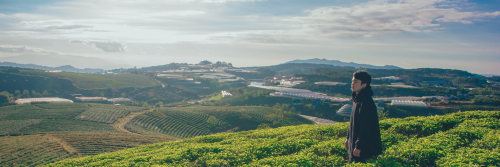I got the call early this morning. There was a homeless veteran who was in need of housing. I was an hour away from my office, but in the same city as this man. I asked for a little more information before I went to pick him up. I was told that he had been living under a bridge, and calling for a bed for 40 days. I got the information that I needed, and drove across town to get him.
It was a dreary day. As the fog lifted, I saw him approach me. I met him in front of the police station. He smelled of alcohol and was a little out of it. I got him situated in my car and we began our hour long drive back to the shelter. He wasn’t very talkative at first, but with enough time, he slowly began to open up. We shared our stories and started to build some trust. He opened up about his experiences overseas, and I could just feel the trauma with every word he spoke. But what I found interesting was, that he never kept fighting for himself. A broken soul, but not beaten.
When I delivered him to the shelter, I went back to my office and starting thinking about my 30 plus years working in mental health. Why is it some people focus, while other people fold? This man had literally nothing left, but still kept fighting. Sure there were some self destructive times, but to have the resolve to call in for 40 days and 40 nights speaks volumes. If I knew nothing else about that man, that would be enough.
How many of us have a bad day, week or even a month and stop trying? I would see this all the time working along side hospice. Someone is given a terminal diagnosis and immediately gives up. Yet, someone else with that same diagnosis understands the reality, but they continue to live, laugh and love as much as possible. Which one are you? Bad day and fold it up? Or, bad day and continue to show up? That has been the biggest gift I have received from working with the dying. Death comes for us all. Might as well make your life a beautiful and interesting story.
How we act is what we attract
Not one of us is exempt from tough times. Cultivate the attitude of 40 days and 40 nights. When you’re experiencing a tough situation, keep fighting for yourself. Just as this young man knew he deserved better, against the odds, he kept fighting. Without turning this into a religious or spiritual piece, I believe that the universe loves a stubborn heart. And how we act, is what we attract. So fight for yourself.
As for my veteran, he is doing okay. He is not really making the best use of his time. But I know his heart. And how he responded to his 40 days and 40 nights, leads me to believe he will be alright.







